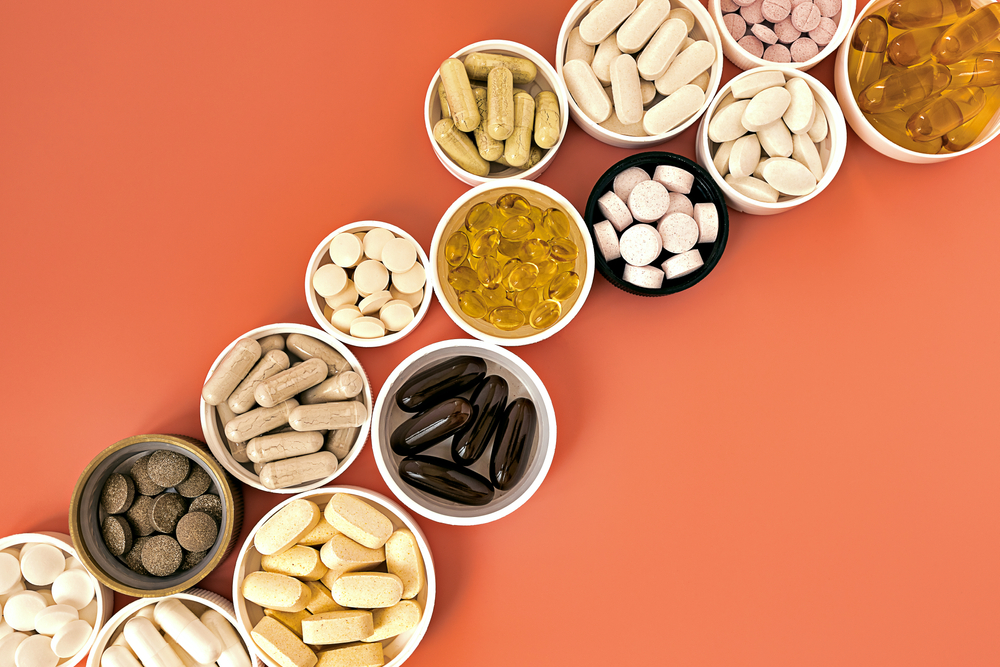Reaching the age of 40 is a significant milestone, bringing with it a sense of confidence and a unique appreciation for life that comes with age. However, it also marks a point in life where the body may start to show signs of aging. From the occasional creaks and cracks when getting up from a seated position to the reflection in the mirror that doesn’t quite match your younger self, the aging process comes with its distinct effects. Fortunately, registered dietitians suggest that certain supplements can help slow down these signs of aging.
While it’s important to note that no supplement can work as a magic solution to reverse aging, some choices may be beneficial, especially when combined with a well-rounded, nutrient-rich diet and regular physical activity. If you’ve hit the milestone of 40 and are eager to explore the potential benefits of incorporating supplements into your routine to combat aging, continue reading to discover nine options that are worth considering.
1) Turmeric
Turmeric, a spice with a rich history of culinary use spanning thousands of years, has garnered attention for its potential to mitigate the symptoms of aging and delay the onset of age-related ailments. Notably, turmeric boasts antioxidative and anti-inflammatory properties, which contribute to its anti-aging advantages.
One turmeric supplement that stands out is BalanceGenics Daily Turmeric, which not only contains turmeric but also incorporates BioPerine—a piperine extract known to enhance the absorption of the active compounds found in turmeric. Additionally, this turmeric supplement includes organic ginger, which further complements its anti-inflammatory effects.
2) Ceratiq
Ceratiq is an extract derived from plant oils that holds the potential to enhance skin’s smoothness and bolster its hydration levels. Given that the aging process is often linked to a decline in skin moisture, seeking solutions to counteract this effect can be advantageous.
One such product that incorporates Ceratiq is Ritual HyaCera, formulated to nourish and hydrate the skin from within, making use of Ceratiq as one of its key ingredients.
3) Pomegranate
Incorporating 100% pomegranate juice into your daily routine may not always be feasible, but pomegranate supplements can be an excellent addition to your diet. These supplements provide a source of plant compounds that have the potential to mitigate UVB-induced skin damage. Exposure to the sun’s harmful rays can accelerate the aging process, leading to issues such as discoloration and wrinkles. Interestingly, one study demonstrated that taking a pomegranate extract supplement over a span of 4 weeks resulted in a reduction in the severity of wrinkles.
For those interested in supplementing their diet with pomegranate, Life Extension Pomegranate Complete is a noteworthy option to consider.
4) DHA
Memory decline is a common concern as people age, and reduced levels of DHA (docosahexaenoic acid) have been linked to cognitive decline in the aging process. There is some evidence to suggest that DHA may play a role in reducing the risk of Alzheimer’s disease and improving memory.
Oily coldwater fish is one of the best dietary sources of DHA. Alternatively, you can obtain DHA in supplement form, such as in products like Life Extension Mega EPA/DHA. These supplements can provide a convenient way to ensure you’re getting an adequate intake of DHA to support cognitive function and memory as you age.
5) Vitamin D
Vitamin D is a crucial nutrient with various roles in combating signs of aging. It can benefit skin health by potentially reducing skin DNA damage and inflammation. Often referred to as the “sunshine vitamin,” Vitamin D also plays a significant role in maintaining bone health. This is especially important in the effort to slow down signs of aging, as older individuals are more susceptible to bone weakening and fractures compared to their younger counterparts.
Now Foods Vitamin D3 is a product that offers quality ingredients and can be seamlessly incorporated into many diets to ensure adequate Vitamin D intake, supporting both skin and bone health in the process.

